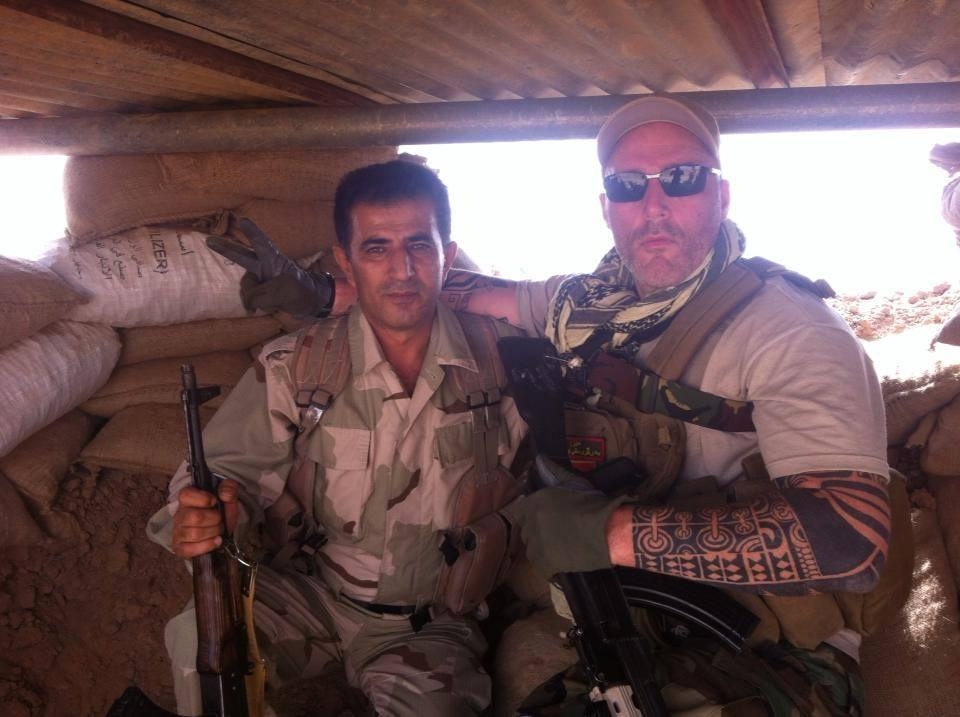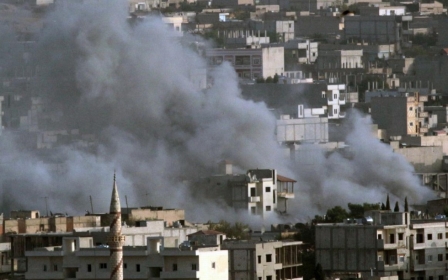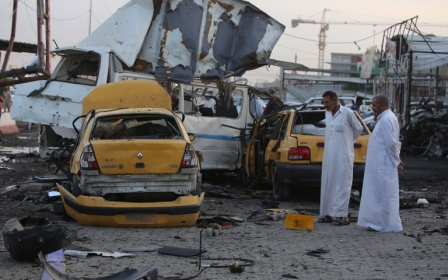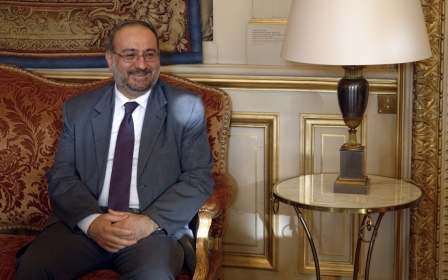Ron the Dutch biker joins Kurds to ‘exterminate’ IS

Dutch motorbike gang members have joined up with Kurdish fighters in Iraq to battle Islamic State (IS) militants.
A photograph posted on a Dutch-Kurdish Twitter account shows a tattooed Dutchman called Ron in military garb holding a Kalashnikov assault rifle while sat with a Kurdish comrade.
“Ron from The Netherlands has joined the Kurds to exterminate the rodents of [IS],” text in the tweet reads.
Ron hails from one of The Netherlands’ biggest motorcycle clubs called “No Surrender”, which has dozens of chapters across Europe. Head of the club Klaas Otto told Dutch newscaster NOS three members, from Amsterdam, Rotterdam and Breda, had travelled to fight IS near Mosul in northern Iraq.
Otto said the three men have military backgrounds and had been motivated to fight after seeing reports of IS violence in Syria and Iraq.
“They wanted to do something when they saw the pictures of the beheadings,” he said.
Video footage apparently from a Kurdish broadcaster shows an armed European man with Kurdish fighters saying in Dutch: "The Kurds have been under pressure for a long time."
The Dutch public prosecutor said on Tuesday the men are not necessarily committing a crime.
"Joining a foreign armed force was previously punishable, now it's no longer forbidden," public prosecutor spokesman Wim de Bruin told AFP.
"You just can't join a fight against the Netherlands," he told AFP.
Many countries including the Netherlands have been clamping down on their nationals trying to join IS militants who have taken over swathes of Iraq and Syria.
Measures include confiscating would-be militants’ passports before travelling and threatening prosecution should they return.
"The big difference with IS is that it's listed as a terrorist group," said De Bruin.
"That means that even preparing to join IS is punishable."
Dutch citizens could not however join the Kurdistan Workers' Party (PKK), as it is blacklisted as a terrorist organisation by Ankara and much of the international community, De Bruin said.
Dutch citizens fighting on the Kurdish side would of course be liable to prosecution if they committed crimes such as torture or rape, De Bruin said.
"But this is also happening a long way away and so it'll be very difficult to prove," said De Bruin.
New MEE newsletter: Jerusalem Dispatch
Sign up to get the latest insights and analysis on Israel-Palestine, alongside Turkey Unpacked and other MEE newsletters
Middle East Eye delivers independent and unrivalled coverage and analysis of the Middle East, North Africa and beyond. To learn more about republishing this content and the associated fees, please fill out this form. More about MEE can be found here.




